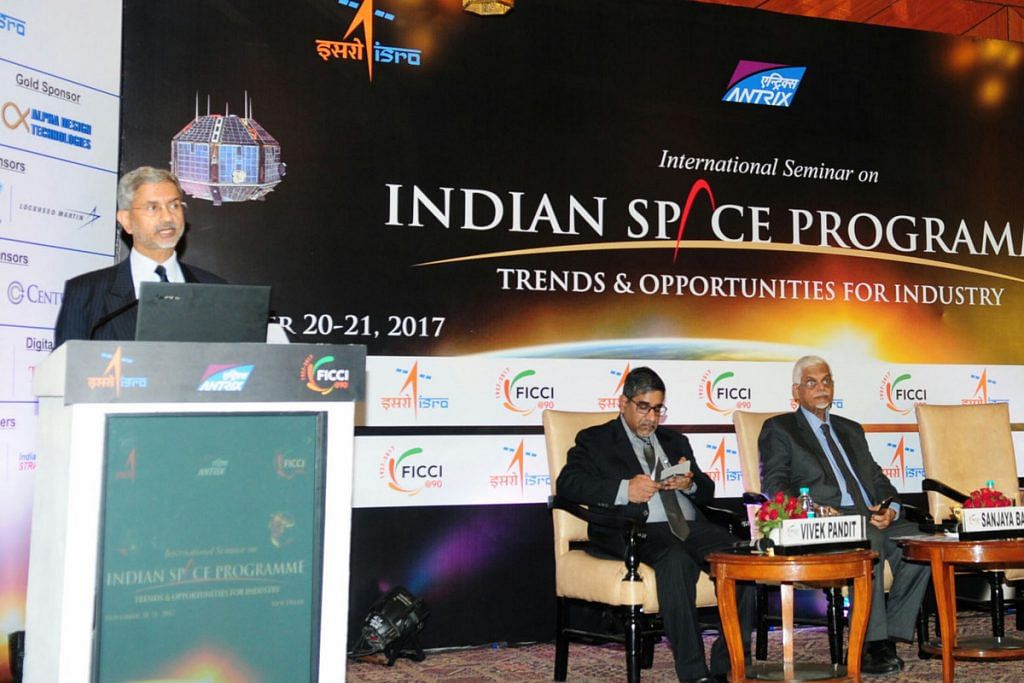India has taken a conscious decision not to have a space weapons programme, despite provocations by Chinese tests in the past.
New Delhi: Making a case for protecting outer space as global heritage, Foreign Secretary S. Jaishankar said that weaponisation of the frontier needs to be prevented.
Speaking at the “Indian Space Programme: Trends and Opportunities for Industry”, Jaishankar termed Indian space efforts as a “people’s programme”, referring to Prime Minister Modi’s commitment to space diplomacy.
“Outer space is an expanding frontier of exploration, and all space-faring countries should protect outer space as heritage,” added Jaishankar. “We must prevent the weaponisation of outer space.”
India does not have a space weapons programme, despite provocations by Chinese tests in the past that included the demonstration of Beijing’s capability to destroy a satellite in orbit. While in theory, similar tests can be carried out by India — scientists say that having mastered the art of putting satellites in orbit, making them collide or take down others can be achieved — a conscious decision has been taken not to open up the new domain.
India does have a dedicated military satellite programme for communications and it uses remote sensing satellites for monitoring troop movement and defences near its border.
Highlighting how critical international cooperation is to the space domain, Jaishankar said this is “hardwired” into India’s space programme, citing the lunar exploration mission, Chandrayaan-I, as a good example of this.
The top diplomat commended the deliberations that took place during the two-day seminar,organised jointly by FICCI, ISRO and Antrix. He said that the two aspects to space accomplishments include capability development and maintaining a good image of India to the international community, both of which are important for him as a diplomat.
The conference ended with an MoU being signed between FICCI and the Singapore Space Technology Association (SSTA) to collaborate on future projects.
The seminar focused on the need for an increasing role of industry and academia for both space technology and infrastructure.
Speakers from ISRO, FICCI, Antrix, NITI Aayog and the ministry of external affairs participated in these discussions. Representatives of the space industries in Japan, Russia and Singapore took part in these sessions as well.
ThePrint is media partner for ‘Indian Space Programme: Trends and Opportunities for Industry’, a two-day international seminar being hosted by ISRO and FICCI at The Ashok, New Delhi.
